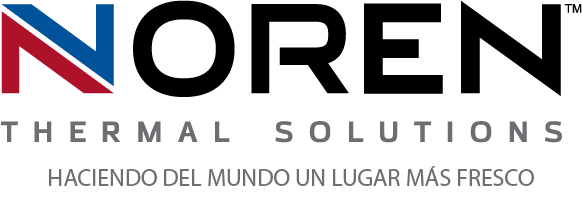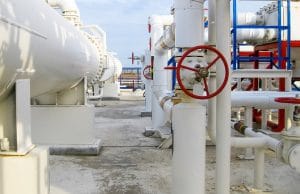 In most industries today, technology has given companies such an edge that competition can be fierce. As a result, companies seek to gain an even greater edge in any area possible, and for many of them, that includes streamlining the electrical thermal management processes that keep their equipment cool. Today, heat exchangers in many different forms have helped companies in every industry become significantly more competitive by helping them boost their efficiency and productivity in several different ways. (more…)
In most industries today, technology has given companies such an edge that competition can be fierce. As a result, companies seek to gain an even greater edge in any area possible, and for many of them, that includes streamlining the electrical thermal management processes that keep their equipment cool. Today, heat exchangers in many different forms have helped companies in every industry become significantly more competitive by helping them boost their efficiency and productivity in several different ways. (more…)
The Safety Aspects of Modern, Custom Thermal Solutions
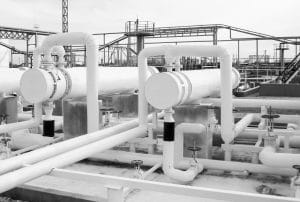 Ever since companies began using them for their electrical thermal management needs, heat exchangers have been well-known for the many different benefits they provide. Those include the improved efficiency that comes with transferring electrical waste heat instead of trying to overcome it with chilled or compressed air. However, in addition to the boost in productivity, efficiency, and cost-savings associated with modern heat transfer techniques, heat exchangers and other custom thermal solutions also help companies improve the safety of many different processes. For companies that operate in particularly hazardous locations, this level of safety has been as important as the many other benefits that come with custom thermal management. (more…)
Ever since companies began using them for their electrical thermal management needs, heat exchangers have been well-known for the many different benefits they provide. Those include the improved efficiency that comes with transferring electrical waste heat instead of trying to overcome it with chilled or compressed air. However, in addition to the boost in productivity, efficiency, and cost-savings associated with modern heat transfer techniques, heat exchangers and other custom thermal solutions also help companies improve the safety of many different processes. For companies that operate in particularly hazardous locations, this level of safety has been as important as the many other benefits that come with custom thermal management. (more…)
More Industries Taking Advantage of Custom Heat Exchangers
 When one or more companies begin to take advantage of some new tech, it may take a while before it becomes advantageous enough to transform the entire industry – if it ever does. With heat exchangers, however, the advantages that companies experience have led to a significantly, relatively fast boom in popularity. What some companies first used as an alternative to air conditioners and air compressors for cooling electrical enclosures quickly became the new standard of electrical thermal management in virtually every industry. Today, we examine the impact that heat exchangers have had on just a few of today’s important industries. (more…)
When one or more companies begin to take advantage of some new tech, it may take a while before it becomes advantageous enough to transform the entire industry – if it ever does. With heat exchangers, however, the advantages that companies experience have led to a significantly, relatively fast boom in popularity. What some companies first used as an alternative to air conditioners and air compressors for cooling electrical enclosures quickly became the new standard of electrical thermal management in virtually every industry. Today, we examine the impact that heat exchangers have had on just a few of today’s important industries. (more…)
How Modern Companies Keep Their Control Panels Cool
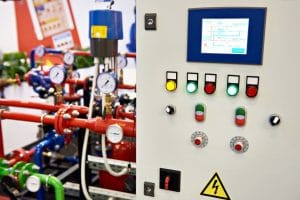 Historically, the process of cooling a company’s electrical control panels used to be quite cumbersome. Out of necessity, electrical enclosures such as control panels had to be adjoined with industrial-strength air conditioning or air compressing equipment to keep a steady flow of chilled air circulating through them. Using such solutions wasn’t necessarily difficult, but keeping them running continuously to keep up with high-performance, everyday production proved a costly and time-consuming hassle. Today, however, most modern companies rely on heat exchangers to cool their control panels and other electrical enclosures more efficiently, and with a higher level of reliability. (more…)
Historically, the process of cooling a company’s electrical control panels used to be quite cumbersome. Out of necessity, electrical enclosures such as control panels had to be adjoined with industrial-strength air conditioning or air compressing equipment to keep a steady flow of chilled air circulating through them. Using such solutions wasn’t necessarily difficult, but keeping them running continuously to keep up with high-performance, everyday production proved a costly and time-consuming hassle. Today, however, most modern companies rely on heat exchangers to cool their control panels and other electrical enclosures more efficiently, and with a higher level of reliability. (more…)
The Advanced Thermal Management that Automation Demands
 All forms of technology require adequate forms of electrical thermal management, and all companies that use technology are affected by the cooling solutions they rely on. However, the many different forms of automated technology that exist today come with a few unique thermal management challenges that traditional thermal management solutions are typically unable to meet. Today, we look a few of these unique challenges, and the ways in which modern heat exchangers have streamlined electrical cooling to overcome them. (more…)
All forms of technology require adequate forms of electrical thermal management, and all companies that use technology are affected by the cooling solutions they rely on. However, the many different forms of automated technology that exist today come with a few unique thermal management challenges that traditional thermal management solutions are typically unable to meet. Today, we look a few of these unique challenges, and the ways in which modern heat exchangers have streamlined electrical cooling to overcome them. (more…)
Ambient Cooling and Industrial Thermal Management
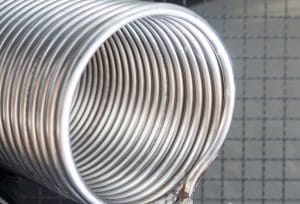 Of the many different options that companies now have for their industrial thermal management needs, ambient cooling (a natural method of preventing electrical overheating) remains one of the more popular methods. Compared to methods such as chilling air with the help of air conditioners or air compressors, the process of ambient cooling is much simpler and more cost-efficient. Yet, it can achieve the same levels of high-performance thermal management, and often higher, without many of the complications and considerations that come with traditional electrical cooling. (more…)
Of the many different options that companies now have for their industrial thermal management needs, ambient cooling (a natural method of preventing electrical overheating) remains one of the more popular methods. Compared to methods such as chilling air with the help of air conditioners or air compressors, the process of ambient cooling is much simpler and more cost-efficient. Yet, it can achieve the same levels of high-performance thermal management, and often higher, without many of the complications and considerations that come with traditional electrical cooling. (more…)
Using Convection as High-Performance Thermal Management
 When it comes to advanced technology, the rule is usually that the more powerful an application is, the more complex its design must be. Fitting high-powered technology into smaller, sleeker, and more manageable systems takes innovation, and that often means designing applications that can accomplish more than their predecessors. However, in the realm of thermal management, achieving more has meant simplifying the processes by which systems control electrical waste heat. Rather than utilizing more complex equipment, heat exchangers use methods such as natural/forced convection to achieve the high-performance thermal management that advanced technology requires. (more…)
When it comes to advanced technology, the rule is usually that the more powerful an application is, the more complex its design must be. Fitting high-powered technology into smaller, sleeker, and more manageable systems takes innovation, and that often means designing applications that can accomplish more than their predecessors. However, in the realm of thermal management, achieving more has meant simplifying the processes by which systems control electrical waste heat. Rather than utilizing more complex equipment, heat exchangers use methods such as natural/forced convection to achieve the high-performance thermal management that advanced technology requires. (more…)
A Few Other Benefits of Heat Exchangers
 Effective thermal management is important to companies for many reasons. Most commonly, it’s the means by which they keep their technology and electrical enclosures properly cooled. In some industries, thermal management is also an important aspect of the production process, such as in food and beverage processing or injection/extrusion molding. No matter their needs, increasingly more companies are turning to advanced heat exchangers to meet thermal management challenges in a more efficient and streamlined way. This has led to several important benefits for those companies, all of which stem from the improved methods of handling electrical waste heat. (more…)
Effective thermal management is important to companies for many reasons. Most commonly, it’s the means by which they keep their technology and electrical enclosures properly cooled. In some industries, thermal management is also an important aspect of the production process, such as in food and beverage processing or injection/extrusion molding. No matter their needs, increasingly more companies are turning to advanced heat exchangers to meet thermal management challenges in a more efficient and streamlined way. This has led to several important benefits for those companies, all of which stem from the improved methods of handling electrical waste heat. (more…)
Technology’s Growth with Improved Thermal Management
 The evolution of technology has faced many different challenges over the last several decades, and most of them were equally difficult to overcome. For example, electrical thermal management, or the ability to prevent electrical systems from overheating, has traditionally been one of the biggest hurdles to jump, and for many different complex reasons. The importance of thermal management is one – without some way to prevent overheating, no technology would function properly. Another concern, however, was finding thermal management solutions that were not only effective, but could also keep up with the increasingly higher demands of advancing technologies. (more…)
The evolution of technology has faced many different challenges over the last several decades, and most of them were equally difficult to overcome. For example, electrical thermal management, or the ability to prevent electrical systems from overheating, has traditionally been one of the biggest hurdles to jump, and for many different complex reasons. The importance of thermal management is one – without some way to prevent overheating, no technology would function properly. Another concern, however, was finding thermal management solutions that were not only effective, but could also keep up with the increasingly higher demands of advancing technologies. (more…)
What Clean Electrical Thermal Management Looks Like
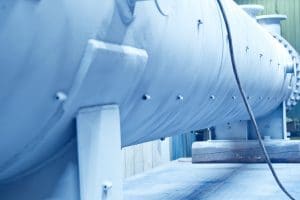 When it comes to prioritizing, many companies put efficiency at the top of their electrical thermal management concerns. While older solutions may be effective at preventing electrical overheating, they aren’t particularly efficient, costing companies significantly in areas such as energy usage and maintenance needs. Besides efficiency, however, modern thermal management also comes with several other important concerns, including the impact that an electrical cooling system can have on a company’s overall environmental footprint. Today, we examine what clean electrical thermal management looks like, and how heat exchangers have helped set the standard for it. (more…)
When it comes to prioritizing, many companies put efficiency at the top of their electrical thermal management concerns. While older solutions may be effective at preventing electrical overheating, they aren’t particularly efficient, costing companies significantly in areas such as energy usage and maintenance needs. Besides efficiency, however, modern thermal management also comes with several other important concerns, including the impact that an electrical cooling system can have on a company’s overall environmental footprint. Today, we examine what clean electrical thermal management looks like, and how heat exchangers have helped set the standard for it. (more…)

